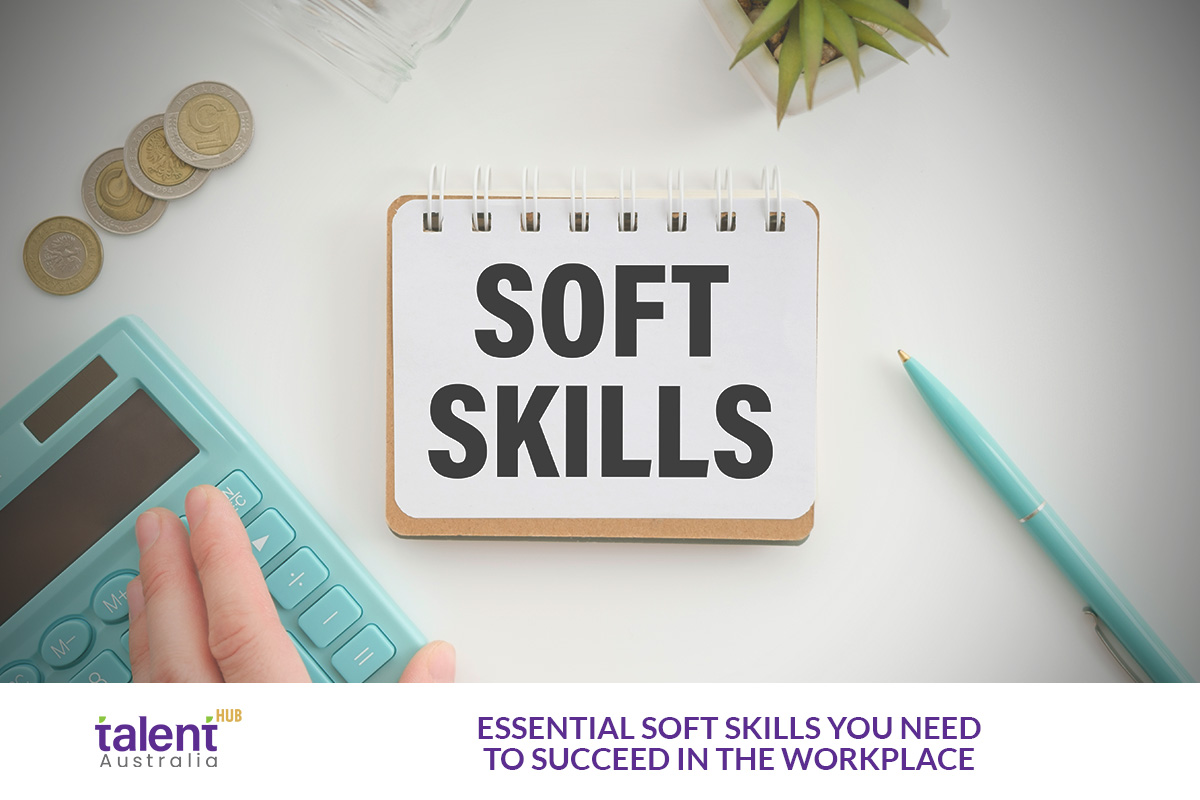
The modern workplace is evolving quickly. Automation and artificial intelligence now perform many technical tasks, meaning employers increasingly look for essential soft skills that only humans can bring. According to a studies, hours spent on soft skills will rise by nearly 25% in the coming years.
Soft skills go beyond knowledge they reflect how you work with others, solve problems and adapt to change. A candidate with strong technical expertise but weak communication or teamwork skills often struggles to succeed long-term. In fact, many employers say bad hires usually fail because they lacked the right soft skills, not because they lacked technical know-how.
When you showcase soft skills on your resume, in cover letters and during interviews, you highlight your ability to thrive in dynamic environments something employers across industries value highly.
What Are Soft Skills?
Soft skills, sometimes called transferable skills, are interpersonal and behavioural strengths that apply across all jobs. They include communication, teamwork organisation, creativity, adaptability and emotional intelligence. Unlike hard skills, which are job-specific and easy to measure, soft skills are harder to quantify but often more important for long-term success.
Employers value them because:
- They are difficult to teach in training programs.
- They shape workplace culture and team collaboration.
- They show resilience and adaptability in times of change.
Soft skills in the workplace often make the difference between a good employee and an exceptional one.
Essential Soft Skills Employers Want
Here are five essential soft skills examples with details on why they matter and how you can demonstrate them.
Communication
Strong communication is always at the top of employer wish lists. It allows you to explain ideas clearly, avoid misunderstandings and build trust. Effective communication includes written, verbal and non-verbal cues.
Examples in the workplace:
- Writing professional reports, proposals or policies
- Delivering persuasive presentations to colleagues or clients
- Listening actively to understand diverse perspectives
- Negotiating with fairness and confidence
When you describe communication skills on a resume, use examples such as: “Delivered weekly presentations to cross-functional teams, improving project collaboration and efficiency.”
Teamwork
No matter your role, you must collaborate with others. Employers want reliable team players who bring positivity, support and respect to workplace relationships.
Examples of teamwork skills:
- Offering encouragement and constructive feedback to colleagues
- Cooperating across departments to reach shared goals
- Resolving conflicts diplomatically
- Demonstrating empathy and respect for diversity and inclusion
In interviews, instead of simply claiming you are a “team player,” share a story of a project where collaboration produced stronger results.
Organisation
Organisational skills demonstrate professionalism and reliability. Employers depend on organised employees to keep projects on track, manage competing deadlines and stay calm under pressure.
Examples of organisational strengths:
- Prioritising tasks effectively with clear timelines
- Arriving prepared and punctual to meetings
- Paying close attention to details that impact quality or compliance
- Managing workloads during high-pressure projects without missing deadlines
You can illustrate this skill by saying: “Successfully coordinated multiple client accounts, delivering all projects ahead of deadline.”
Critical Thinking
Employers value employees who can analyse issues objectively and make informed decisions. Critical thinkers question assumptions, explore alternatives and recommend solutions backed by evidence.
Examples in practice:
- Researching options before choosing the best strategy
- Asking thoughtful questions to uncover underlying issues
- Offering creative yet practical solutions to complex problems
- Demonstrating curiosity and resourcefulness when faced with challenges
On your resume, you might phrase it as: “Evaluated operational processes and proposed changes that reduced costs by 15%.”
Creativity
Creativity is not limited to artistic ability; it is about innovation, adaptability and problem-solving. Creative employees bring fresh perspectives and help businesses stay competitive.
Examples of creativity in the workplace:
- Brainstorming innovative solutions to recurring issues
- Applying design thinking to product or service improvements
- Adapting quickly to changing project requirements
- Experimenting with new strategies and learning from results
Creativity signals that you can pivot quickly, think differently and adapt to modern challenges all qualities employers prize.
Hard Skills vs. Soft Skills: The Key Difference
Hard skills refer to technical expertise you can measure, such as programming, accounting or machinery operation. Soft skills, however, describe how you apply knowledge and interact with others.
Both matter, but soft skills often become the deciding factor in hiring. For example, two candidates may share the same technical qualifications. The one who demonstrates adaptability, strong communication and collaboration will usually be the better long-term hire.
How to Develop Soft Skills
Although harder to quantify, you can strengthen soft skills through consistent effort and practice. Here are proven ways to start developing soft skills:
- Observe role models: Watch how effective colleagues lead meetings, handle conflicts or communicate clearly.
- Seek constructive feedback: Ask managers or peers where you excel and where you can improve.
- Take initiative: Volunteer for projects that push you outside your comfort zone.
- Join training programs: Participate in workshops on leadership, teamwork or communication.
- Practice outside work: Sports, community volunteering and even academic projects build teamwork, problem-solving and organisation.
By developing soft skills actively, you position yourself as adaptable, resilient and ready for leadership opportunities.
Final Thoughts
Employers across industries increasingly prioritise essential soft skills because they reflect adaptability, collaboration and problem-solving. By strengthening communication, teamwork organisation, critical thinking and creativity, you set yourself apart in the job market. When you highlight these soft skills with clear examples both on your resume and in interviews you demonstrate more than just competence. You show that you can thrive in today’s evolving workplace, adapt to future challenges and lead with confidence.
